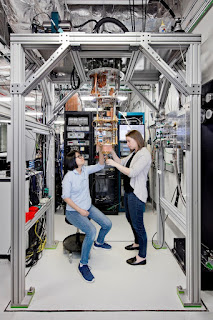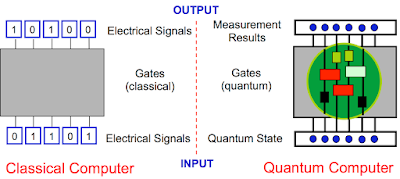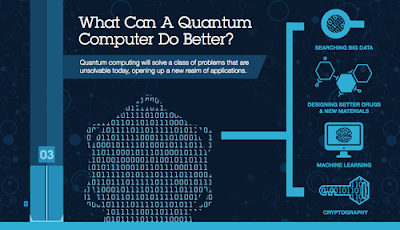Twitter Feed
NCOIC Discusses e-Discovery and Cloud Computing
Last week during its weekly meeting, the NCOIC Cloud Computing Working Group (CCWG) examined some of the legal aspects surrounding electronically stored information. With government use of cloud computing expected…
Take the survey, get a book!
“Cloud Musings”, in cooperation with Aditya Yadav & Associates, is conducting a new cloud computing survey. This short, eight (8) question poll, is designed to gauge general corporate plans around…
Army Knowledge Leaders Study Cloud Computing
This week it was my pleasure to explore cloud computing with Army Knowledge Leaders (AKL) ! AKL is an intensive 2 year experience of training and work rotations designed to develop leadership,…
Northrop Grumman & Lockheed Martin Selected for CANES
Last week the US Navy awarded initial CANES contracts to Northrop Grumman and Lockheed Martin. Navy officials place the contract values at $775M for Northrop and $937M for Lockheed.…
NCOIC Analyses Cloud Computing With SCOPE
Last week, the Network Centric Operations Consortium (NCOIC) Cloud Computing Working Group (CCWG) started it’s work on cloud interoperability in earnest. The first step in their process is the completion…
TASER Awarded: The NGA ASP/ISP Transition Contract
The National Geospatial-Intelligence Agency (NGA) has awarded the Total Application Services for Enterprise Requirements (TASER) contract to: Accenture National Security Services, LLC BAE Systems Information Technology, Inc. The Boeing Company-Autometric,…
EuroCloud Expands Quickly
Last October I introduced EuroCloud as a pan-European business network with the goal of promoting European use of cloud computing. In the intervening three months, the organization has grown to…
Joining NJVC: A Professional Plateau
This week I begin a new and exciting phase of my professional career by joining the NJVC Enterprise Management Team! For those unfamiliar, NJVC is one of the largest information…
DoD Deputy CIO on Secure Information Sharing
Today on Federal Executive Forum, Dave Wennergren, Deputy CIO, Office of the Secretary of Defense, shared his views on secure information sharing. Mr. David M. Wennergren serves as the Deputy…
Training Conference: Cloud Computing for DoD & Government
Please join me at the Cloud Computing for DoD & Government training conference, February 22-24, 2010 at the Hilton Old Town in Alexandria, VA. This unique conference agenda blends interactive…
- The release of a new API (Application Program Interface) for the IBM Quantum Experience that enables developers and programmers to begin building interfaces between its existing five quantum bit (qubit) cloud-based quantum computer and classical computers, without needing a deep background in quantum physics.
- The release of an upgraded simulator on the IBM Quantum Experience that can model circuits with up to 20 qubits. In the first half of 2017, IBM plans to release a full SDK (Software Development Kit) on the IBM Quantum Experience for users to build simple quantum applications and software programs.
The IBM Quantum Experience enables anyone to connect to IBM’s quantum processor via the IBM Cloud, to run algorithms and experiments, work with the individual quantum bits, and explore tutorials and simulations around what might be possible with quantum computing. Since its launch less than a year ago, about 40,000 users have run over 275,000 experiments on the IBM Quantum Experience. It has become an enablement tool for scientists in over 100 countries and, to date, 15 third-party research papers have been posted to arXiv with five published in leading journals based on experiments run on the Quantum Experience.
 The broad availability of quantum computing capability could prove to be a significant blow to current data encryption practices. In 2015 the US National Security Agency actually advised US agencies and businesses to prepare for a time when the cryptography protecting virtually all e-mail, medical and financial records, and online transactions would be rendered obsolete by quantum computing. The US National Institute for Standards and Technology (NIST) is also running a competition to spur work on post-quantum algorithms.
The broad availability of quantum computing capability could prove to be a significant blow to current data encryption practices. In 2015 the US National Security Agency actually advised US agencies and businesses to prepare for a time when the cryptography protecting virtually all e-mail, medical and financial records, and online transactions would be rendered obsolete by quantum computing. The US National Institute for Standards and Technology (NIST) is also running a competition to spur work on post-quantum algorithms. - Drug and Materials Discovery: Untangling the complexity of molecular and chemical interactions leading to the discovery of new medicines and materials;
- Supply Chain & Logistics: Finding the optimal path across global systems of systems for ultra-efficient logistics and supply chains, such as optimizing fleet operations for deliveries during the holiday season;
- Financial Services: Finding new ways to model financial data and isolating key global risk factors to make better investments;
- Artificial Intelligence: Making facets of artificial intelligence such as machine learning much more powerful when data sets can be too big such as searching images or video; or
- Cloud Security: Making cloud computing more secure by using the laws of quantum physics to enhance private data safety.
This content is being syndicated through multiple channels. The opinions expressed are solely those of the author and do not represent the views of GovCloud Network, GovCloud Network Partners or any other corporation or organization.
( Thank you. If you enjoyed this article, get free updates by email or RSS – © Copyright Kevin L. Jackson 2017)
Cloud Computing
- CPUcoin Expands CPU/GPU Power Sharing with Cudo Ventures Enterprise Network Partnership
- CPUcoin Expands CPU/GPU Power Sharing with Cudo Ventures Enterprise Network Partnership
- Route1 Announces Q2 2019 Financial Results
- CPUcoin Expands CPU/GPU Power Sharing with Cudo Ventures Enterprise Network Partnership
- ChannelAdvisor to Present at the D.A. Davidson 18th Annual Technology Conference
Cybersecurity
- Route1 Announces Q2 2019 Financial Results
- FIRST US BANCSHARES, INC. DECLARES CASH DIVIDEND
- Business Continuity Management Planning Solution Market is Expected to Grow ~ US$ 1.6 Bn by the end of 2029 - PMR
- Atos delivers Quantum-Learning-as-a-Service to Xofia to enable artificial intelligence solutions
- New Ares IoT Botnet discovered on Android OS based Set-Top Boxes




